Regina
Regina- Pesticide-free parks administration report A motion for biocide-free parks (MN09-6) was brought up by councillor Fred Clipsham and passed at the June 22, 2009 Regina city council meeting. In this report, the administration identifes 3 good candidate parks as a pilot project. This report was DEFEATED. One more chance remains of getting pesticide-free parks at the next Council meeting on April 26, 2010. Go to http://www.regina.ca/Page89.aspx for how to present a brief to Council. It has to be filed on the Thursday prior to the meeting by 1 pm. If not presenting a brief, please phone your councillor to express your support.
We won! YES to pesticide-free parks in Regina in 2010
The City of Regina Spray Advisory Line (777-7777) can be phoned to check on daily activities. Regina also advertises its pesticide program in the newspaper. (I believe they do so at the beginning of the season or before a particular spray program such as the Dutch Elm Disease program in the fall). Wascana Centre Authority (WCA) manages its own lands including being responsible for pesticide application. This includes the grounds of the University of Regina. It is much more difficult to obtain spraying information from WCA.
It would take a lot more time and money than SNAP has to do a thorough survey of municipal pesticide use. Do you know of any municipality with pesticide-free parks in SK? Let SNAP know.
Citizens of Saskatoon (2005) and Regina (2002) have unsuccessfully requested pesticide bylaws. Saskatoon park staff often says that their parks are pesticide-free but they certainly use RoundUP for invasive plants (even in Meewasin) and, I think, cracks in sidewalks and streets. If you live in Saskatoon, the Saskatchewan Environmental Society (SES) is keeping in touch with the city and Is promoting a pesticide reduction program.
The request for pesticide bylaw in Regina (2003) resulted in the formation of an
IPM committee and a series of resolutions by city council including setting up pesticide-free demonstration areas. The following year, this resolution was cancelled. The IPM committee was subsequently disbanded. The City of Regina Parks department has experimented with a hot water machine for weed control on hard surfaces. The machine was improperly used for most of the trial period. This needs to be revisited. In October 2012
, the city of Regina parks department is currently preparing a report for pesticide reduction and education for approval in January 2013.
It would take a lot more time and money than SNAP has to do a thorough survey of municipal pesticide use. Do you know of any municipality with pesticide-free parks in SK? Let SNAP know.
Herbicides are commonly used in parks, golf courses and any other city or municipal property. They generally include 2,4-D mixtures and Roundup at the very least. Municipalities may also have noxious weed control, often with more toxic products.
Insecticides: Many municipalities with Dutch Elm Disease programs will spray the base of their elm trees with chlorpyrifos (Dursban) in the fall. and have extensive summer spray programs with glyphosate (Roundup) on sidewalks, pathways, playgrounds, under fences, in school yards, baseball fields and other locations and spray with more toxic chemicals for noxious weed control (Leafy Spurge, Canada thistle, Scentess chamomile for instance). Regina Parks department also sprays the reduced risk products Btk in the spring for cankerworms and has sprayed insecticidal soap (unknown if pyrethrins added), for aphids on trees in summer, and are responsible for mosquito control in and around the city for West Nile virus control as well as for nuisance mosquitos. The city of Regina is also responsible for indoor pest control in its facilities. This program seems to be using least toxic alternatives products. WCA has added a spring dormant oil (reduced risk if pyrethrin free) program for scale insect control, hopefully only when needed.
In addition, SNAP heard of many municipalities that will spray an area planned for a large event with malathion or other insecticide shortly prior to the event taking place to reduce mosquitos.
Rodenticides are used for ground squirrel control, rat, mouse control. They vary from various types of poison bombs in ground squirrel burrows, to poison bait (much more worrisome and known to cause a lot of children and pet casualties when not used properly). Municipalities do not generally use traps for rodent control.
Fungicides are used mostly on city golf courses. Regina has also been experimenting with hardier grasses for greens which may reduce fungicide use.
Avicides some municipalities may use avicides to get rid of sparrows or pigeons.
Large municipalities have parks departments which are generally responsible for pesticide use. Smaller municipalities may contract out some or all pesticide use.
Check with your municipality.
Most schools also regularly sprayed outside for weeds. We heard of some Moose Jaw schools getting rodent poison bait installed before school started (worrying). Many schools also use some insecticides indoors. If they do, they should keep a copy of the Material Safety Data Sheet (MSDS) identifying active pesticide ingredients and some toxic formulants for each product. The Regina Public schools chose to use a vinegar-based herbicide in 2008.
School boards may or may not have agreements with their municipalities for weed and insect control, or they may hire professional companies.
I have been able to visit many gorgeous public gardens with no negative health effects from pesticides. I do check with them on if or where they may have used some pesticides within the 2 weeks previous to my visit. The gardens below alll choose the lowest toxicity alternative first.
Here is a quick tour of fantastic gardens.
Canada
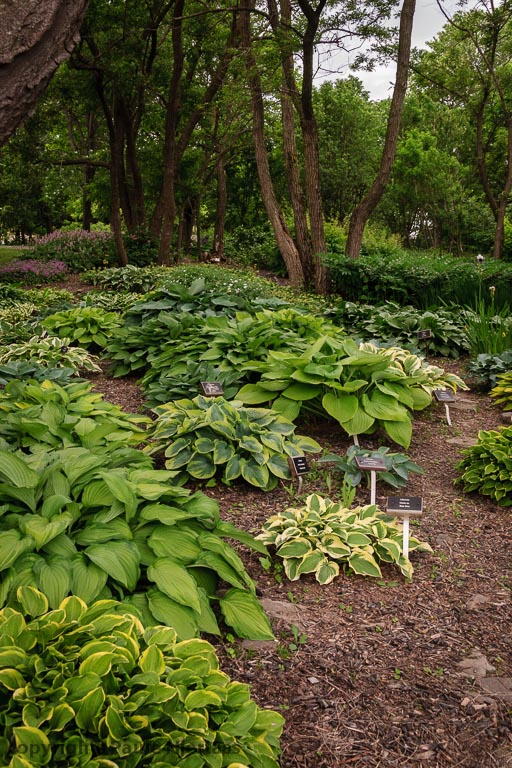
Hosta garden, Jardin van den Hende, Quebec City
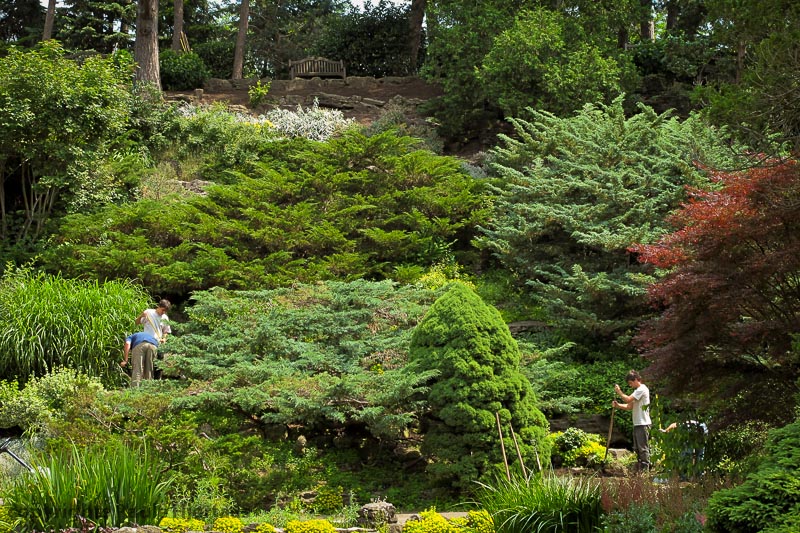
Planting summer annuals at the Hamilton Botanical Garden, Ontario
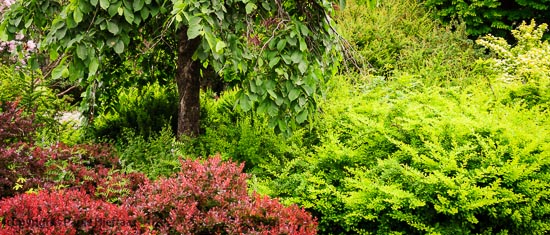
Shrub bed- Jardin Van den Hende, Quebec city
United States
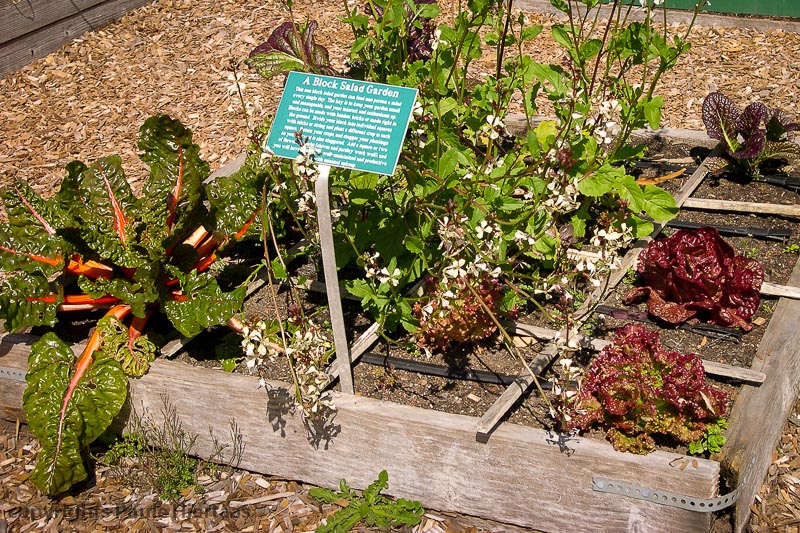
Organic garden demonstration, Mendocino botanical garden, Mendocino, California is one of the official testers for Rodale's Organic Gardening
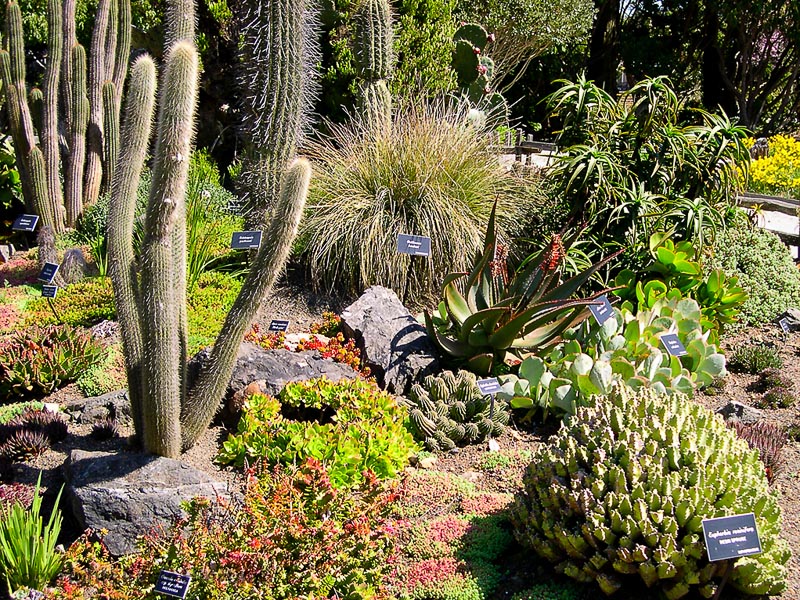
Mendocino botanical Garden, Mendocino, California
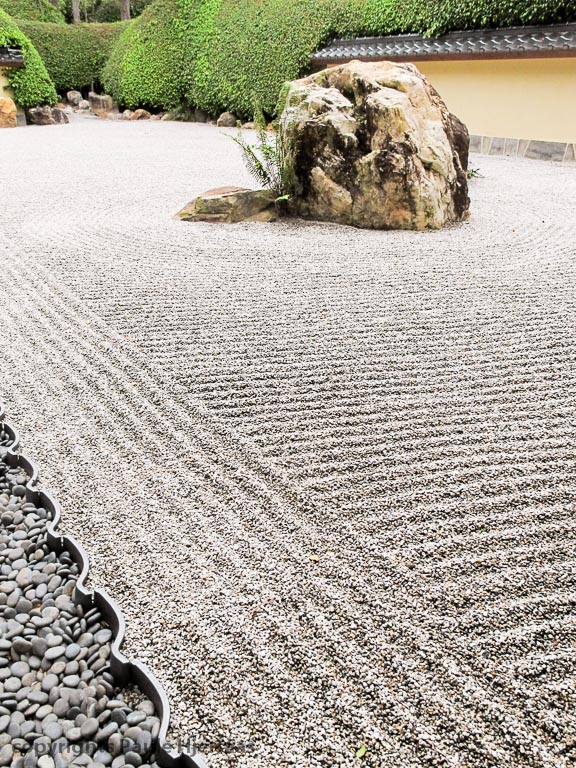
Morikami Japanese Garden, Del Ray, Florida
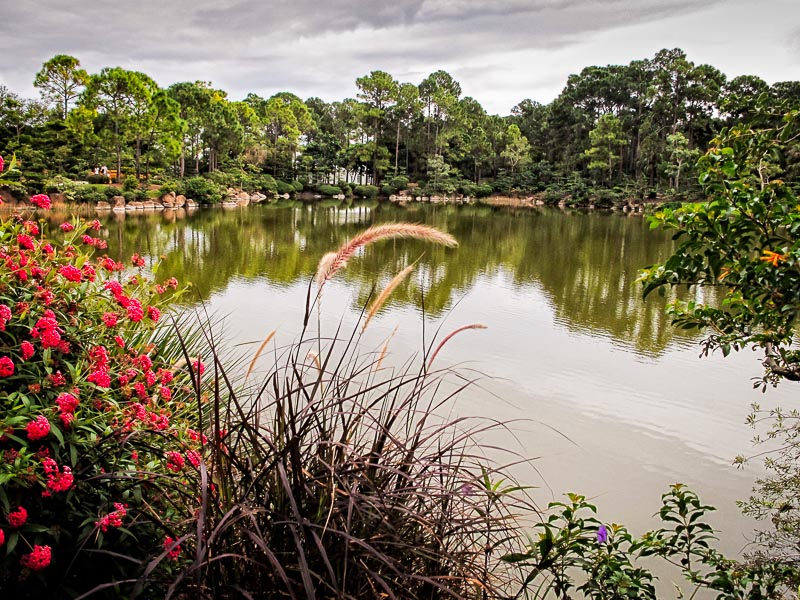
Morikami Japanese Garden, Del Ray, Florida
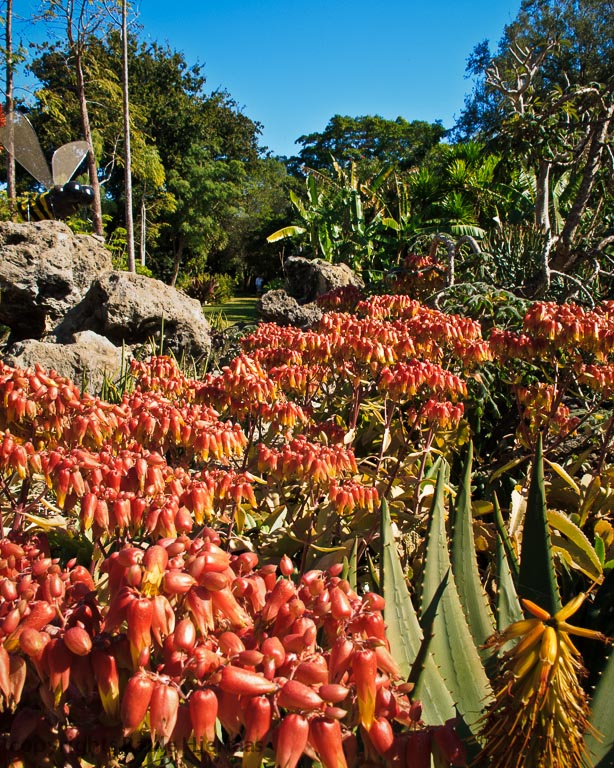
Fairchild Botanical Garden, Miami, Florida
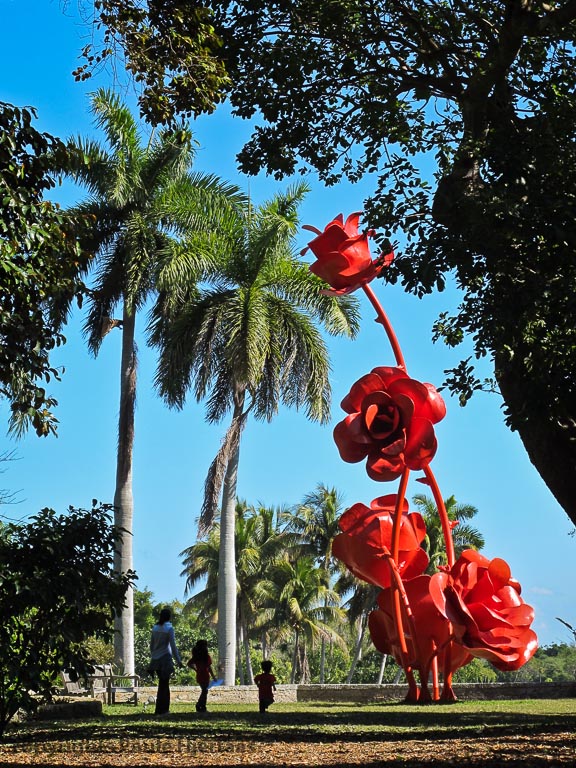
Fairchild Botanical Garden, Miami, Florida
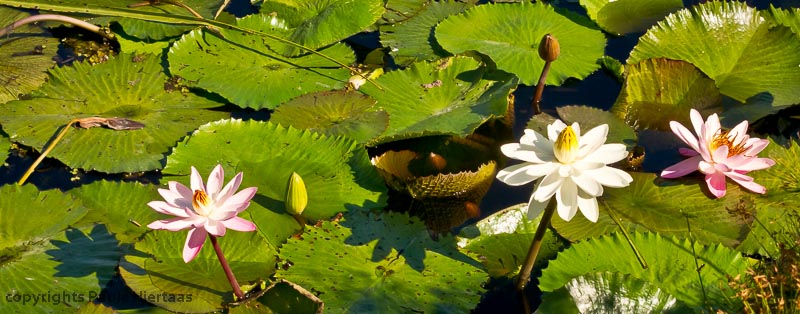
Naples botanical Garden, Naples, Florida
 Pesticide-free Parks are a great way to demonstrate alternatives methods of controlling weeds and educating a neighbourhood on alternatives. This information is American. Included in Ten Steps to Pesticide Free Parks are sample petition, volunteer form, sample letter to decision-makers, testimony to city council, agreement contract and many more. It refers to actions such as letters to the editor and meeting with elected officials. You will find how to information on those topics in the action section of the site.
Pesticide-free Parks are a great way to demonstrate alternatives methods of controlling weeds and educating a neighbourhood on alternatives. This information is American. Included in Ten Steps to Pesticide Free Parks are sample petition, volunteer form, sample letter to decision-makers, testimony to city council, agreement contract and many more. It refers to actions such as letters to the editor and meeting with elected officials. You will find how to information on those topics in the action section of the site.










